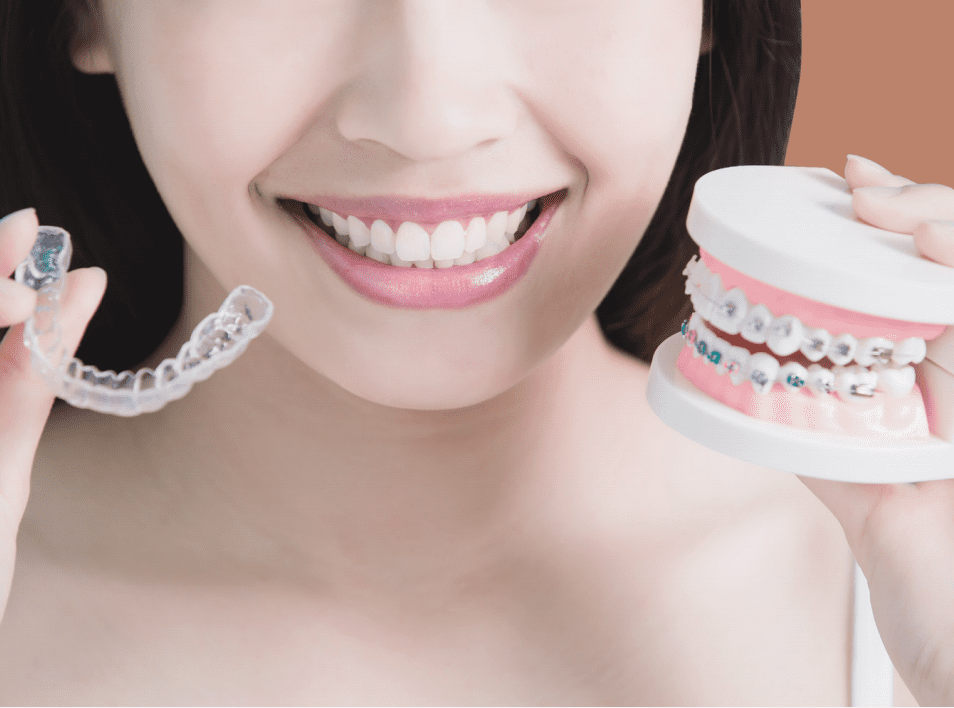FAQs
Can you be too old for braces?
Generally speaking, no. A lot of people receive braces treatment in their adulthood.
How much do braces cost?
This will depend on the type of braces, as well as the position of your teeth and jaws. During the specialist consultation, our braces specialist (orthodontist) will explain your treatment options, including the cost and estimated duration of the treatment.
How long do you need to wear braces?
It varies from case to case, depending on the initial position of teeth and alignment of jaws. On average, treatment duration is usually about 1-2 years but some cases can take shorter or longer.
Will I need to have my teeth removed for braces?
This depends on the degree of misalignment of your teeth. Sometimes, teeth can be straightened without needing extractions. In some cases however, if the teeth are very crowded together, teeth may need to be extracted to free up space in order to achieve an optimal result.
How are braces placed on teeth?
During this appointment, your teeth are first cleaned and polished. The braces are then attached to the teeth with a bonding cement, and an archwire is placed through the braces.
Do braces hurt?
After your braces are placed, you may feel some discomfort in the first few days while getting used to them. Also, during the monthly follow-ups the tightness of your braces will be adjusted. Thus, there is usually some slight discomfort as your teeth shift and straighten. Fortunately, this usually goes away after the first few days as well. The braces may also rub your lips, cheeks or tongue and cause ulcers initially. This may be managed with the use of braces wax and an ulcer cream/gel.
How often should you see your orthodontist when wearing braces?
Generally, it can be anywhere from 4 to 8 weeks apart, depending on your situation. These follow-up appointments are for the orthodontist to check on your progress and adjust the tightness of your braces to move your teeth to the desired result.
Do you still need to see your dentist while wearing braces?
Yes, orthodontists manage your braces treatment but dentists see to your overall dental health. They work together but not as replacements for each other. You will still need regular 6-monthly checkups and cleaning appointments with your dentist. Your dentist will check to make sure that there are no tooth decay or gum problems so that your teeth and gums remain in good condition even while having braces.
How do you clean your teeth when you have braces?
You will need to brush your teeth after every meal, and clean between your teeth and braces with an interdental brush before going to bed. Our orthodontists and dentists will instruct you on how to look after your teeth while having braces.
Are there any foods you can’t eat while having braces?
Generally you will need to avoid foods that are hard or sticky, like nuts and chewing gum as these may damage your braces.
Can you still play sports or a music instrument with braces?
Yes you can, although you might take some time to adapt and adjust. Most people find that braces do not interfere with their usual activities. For sports, you may need to wear a mouthguard for safety.
What are retainers? What is the difference between retainers and braces?
Braces straighten your teeth. Retainers maintain the straightness of teeth that the braces have achieved for you. Thus, retainers are worn only after you’ve completed your braces treatment.
What are the types of retainers available?
Retainers can be either removable or fixed to your teeth. Removable retainers can be taken out for eating and cleaning, whereas fixed retainers are bonded onto the back of your teeth. Upon completing your braces treatment, our orthodontist and dentists will recommend the type of retainers most suitable for you.
How long should you wear your retainers after braces?
Initially, you may be required to wear your removable retainers the whole day and only remove them for eating and cleaning. Afterwards, they are usually only worn at night. After completing your braces treatment, you should wear your retainers diligently to maintain the results.
![]() ✓ Our Student/NSF braces package costs $3,488! Click here to learn more.
✓ Our Student/NSF braces package costs $3,488! Click here to learn more.

 Book an Appointment
Book an Appointment
















